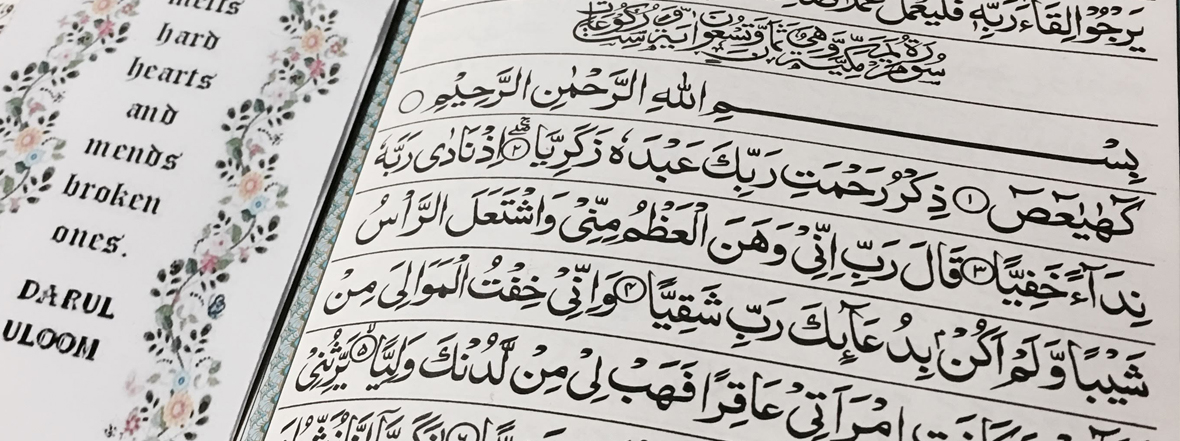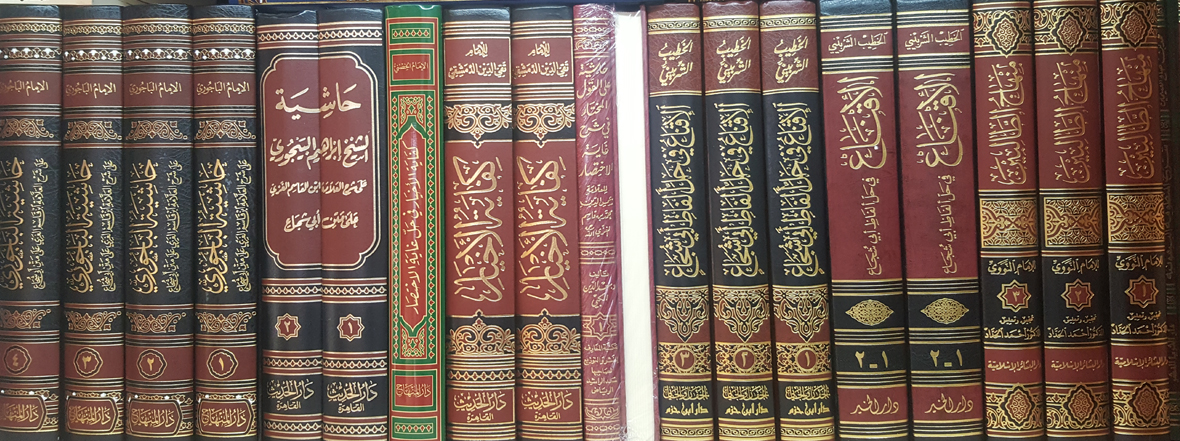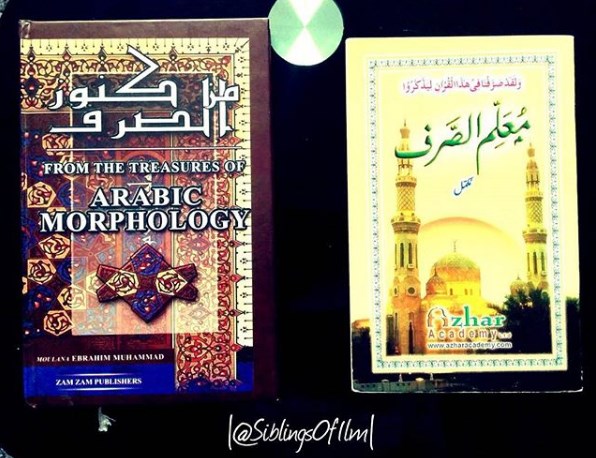I’ll be straight forward and honest here – when you ask “Is it easy?” – well, it depends on your concept of “easy.” If it were “easy” like the way that shopping for handbags at Dubai Mall is easy, everyone would be fluent in no time at all. Learning a language quickly is “easy” compared to a lot of things… but not “easy” like going to a spa.
Here are my 15 pieces of advice for anyone who wants to learn Arabic, or any new language. From my experience:
1. I wanted it really badly. I had thought about learning Arabic ever since I moved to Dubai. It wasn’t until one day, in August of 2011 (I had been in the UAE for exactly one year), that something snapped in me and I realized that I needed to learn the language. Not just for the sake of “being an Arabic speaker,” but for what it would make of me as a person – in terms of discipline, self-development, and values. “If it’s not something you have to be born with, why can’t I learn it? If anyone can learn it, it’s me.” Tell yourself that until it sinks in and you believe it with conviction.
2. I had some adversity. People told me “it’s really hard, you know. It would take at least 3 years to be decent at Arabic.” I remember going to HR to ask for support, company-sponsored classes, etc. They refused. HR looks at your job description, not your life goals. That said, it’s a mistake to believe that you ever work for anyone other than yourself, even if your paycheck comes from the company. Remember that you are responsible for the way you think and react. So register for the classes on your own if you have to.
A few months into my study, I remember colleagues and managers making fun of me, saying I was hopeless, saying that I had a long way to go, and even one person told me “when you try to speak Arabic, it’s really not that coherent.” Ouch! Now, when someone tells you something like that, you choose how to react. You can say “Oh really? Oh, I better stop taking classes and studying, I’ll always be incoherent.” Or you can say “Maybe not yet. But I will be.” The funny thing is, the person who told me that I was “incoherent” didn’t speak Arabic himself, so how would he have known? Now my friends and I just laugh about it.
Just keep practicing and resolve to prove people wrong! The adversity, if taken the right way, will make you better.
3. I practiced with the natives. In my experience, people love to help those who want to learn from them, and people who are passionate about learning. Teaching makes you feel good.
For the duration of my studies, I attended Arabic class before work (8-9am), so when I came in the office every day, I would always have new words and phrases to try out on my colleagues. Almost immediate satisfaction for that day’s lesson!
4. I tweeted. I started my Twitter account in June 2012, about 9 months after I started learning Arabic. It’s perfect for learning because reading tweets in Arabic is not too daunting, given the character limits. Read, reply, re-tweet, and ask questions on Twitter. Share your life, share things you learn in class, practice the phrases, make mistakes…and help others who are learning English (give back!)
5. I cheated only minimally with Google Translate. Don’t cheat, because it will come back to bite you—and the bite will leave a mark. I say this because it’s pretty easy to tell when you copy and paste from Google translator! At first I used to do it quite a bit, just to check that I was saying the right things, etc…but for a language like Arabic, even Google does have its limits…you cannot translate into the colloquial dialects (as of yet), so if you copy and paste from Translator, it will be pretty obvious that either A) you are a total newbie to the language, or B) you are trying to sound overly-eloquent and therefore strange…of course, there are times when it’s perfectly correct to sound eloquent, and there are times when I translate famous quotes from English to Arabic and I use translator to help refresh my “eloquent” vocabulary. But be careful with it. Try to get a second opinion first.
6. I asked questions. Especially the ones I didn’t want to ask. Don’t be afraid of sounding “dumb” – the one who doesn’t ask questions and makes mistakes later is more “dumb”! If you see someone conjugating a certain verb a certain way, or you notice a word being used in a different way you thought it would be used, etc…ask! Sometimes it’s nothing more than the other person’s typo (bravo to you for spotting an error in a foreign language!) or other times it’s an irregular verb or perhaps a word that is being used to mean something else in colloquial talk. I.e. there’s a word “raheeb” that people say to mean “awesome!” in Arabic. But if you look it up in Translator it literally means “terrible!” So don’t look up something in Translator and automatically get offended. Ask, ask, ask…then react as you like, after you have the information.
7. I studied how to Write, Read, AND Speak. Don’t be a scrimp. And by “scrimp” I mean one of the people who set themselves up for failure from the beginning. How? The ones who say “I don’t care to learn the writing or reading or alphabet, just give me a class in conversation only…you know, just enough to get by.”
“Get by” how? You’ll understand what people are saying in the elevator, but what about the Whatsapp messages we’re writing? 😉 Aiming for the moon and hitting somewhere in the sky is better than shooting for the sky and hitting your car. Or your friend or yourself.
8. I picked up magazines and newspapers. Just like creating a Twitter or FB or Instagram in Arabic, it’s important to read what Arabic speakers like to read, read about the news, read about the latest fads… it’s important for your cultural development, which goes hand-in-hand with the language. I remember when I first started learning Arabic, I picked up a copy of “Haya” magazine (a women’s fashion magazine that MBC used to sponsor) – I would sit at my desk and type the words into Google translator, one by one! Then write the meanings in the margins of the article. Extremely long and arduous process to read an article, though, if you’re a beginner.
9. I downloaded podcasts and watched YouTube videos. Again, important for learning and cultural development. In the mornings as I got ready for classes, I always listened to podcasts in Arabic, or for Arabic learning. There was a podcast called “Saudi Geeks” that I really loved (yes, my inner nerd coming out…! Haha), and recordings of a Saudi Radio show called “Al Thaneeya.”
10. I had someone who could help at all times if a question came up. If the designated “person” didn’t answer right away, I asked on Twitter. Don’t let the question or thought pass you by without an answer. And it doesn’t always have to be the same person; when one person gets sick of answering all your questions, time after time, give them a break! Ask someone new. If it’s the middle of the night in Dubai and you have a burning question about something, ask somebody in the US! And for the times when you cannot call or chat someone up (i.e. you’re in the salon, checkout line, etc.)…try keeping a list of “thoughts” in your phone under “Notes.” Just a tip 😉
11. I translated my thoughts until I could think in the language. I remember hearing somewhere that humans think around 60k thoughts in a day. If you can attempt to translate just a fraction of those, imagine how much you would learn and retain! Also it is a good way to come up with “thoughts” for your Notes – how do I say “_x_” in Arabic?” The person may ask “how did you think of that question?” you say “oh, was just translating a thought I had this morning.” Makes for interesting conversation, to say the least.
12. I tried translating lyrics as I heard them (which is quite amusing). And sometimes a bit disturbing. But again, it’s good practice and easy to do.
13. I wrote, re-wrote, and re-read. I have a habit of copying down all my new vocabulary words onto notebook paper, then re-writing them in English and Arabic a couple times. Then I copy them into an Excel document so I can search and refer back later. Of course, I don’t remember every single word as soon as I copy it a few times on paper—that’s what the Excel is for, to help me review from time to time. I’ve actually started re-writing the Hijazi dialect notes again on paper, just for my own benefit. It’s important to keep the knowledge as fresh as possible, you never know when it will come in handy.
14. I kept learning\ I am always learning. I don’t think anyone can ever learn every single word or idiom in their mother tongue, so don’t think just because you passed the Al-Kitaab 3 exam with flying colors that you know everything. Or even a translator’s exam…or maybe you read Hans Wehr from cover to cover (in that case, bravo!)…still, there’s always something new to learn.
15. I am grateful. I cannot thank my friends, teachers, and colleagues enough…the people who will correct you when you’re wrong, and inspire and encourage you. They’re the ones to keep around, because they love you enough to teach you and help you be a better person! Education is power. Some people don’t like being corrected – I’ve received feedback from some who get embarrassed or annoyed when I correct their English. I think that’s naïve – if my spelling, pronunciation, or writing is full of mistakes, I want to know what I did wrong so that I can improve! If you let people go on making the same errors, they only feel worse later when they learn the right way. You might say “well at least I kept my face” – face of what? Face of being wrong? I’d rather take the criticism, learn, laugh it off, and move on. Don’t sacrifice your development for 5 minutes of feeling eloquent. Thank your critics and teachers, because they challenge and strengthen you. And that’s what it’s all about!
Source: www.lahjaty.com






